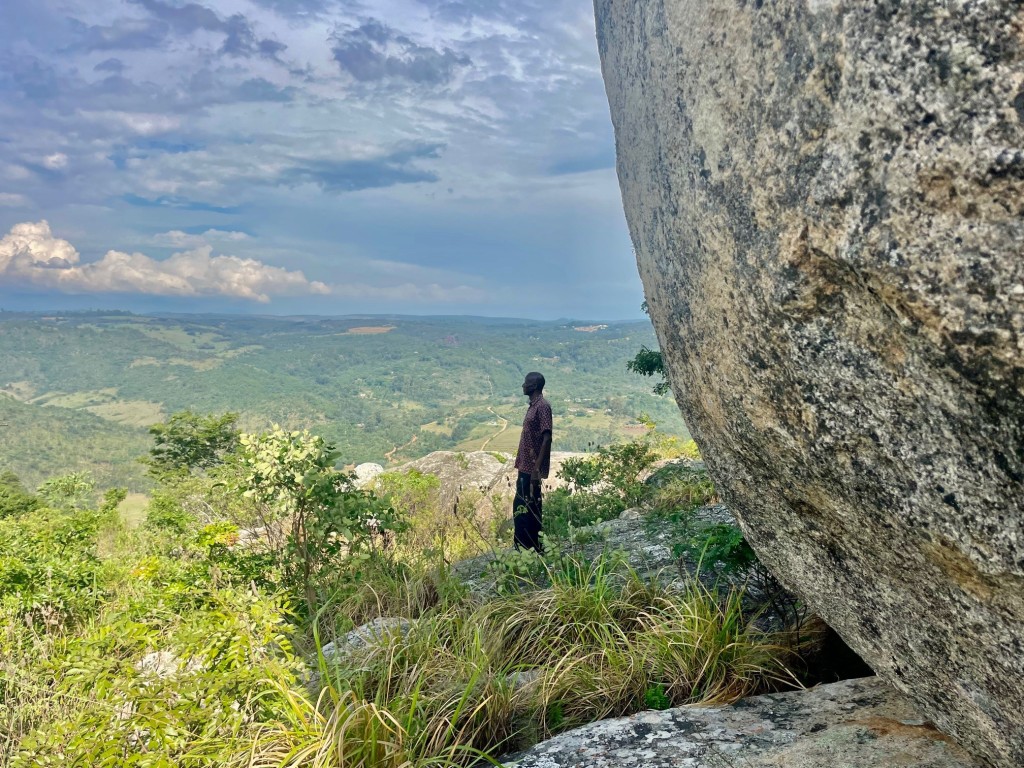
This is the third in a short blog series on Zimbabwe research published recently. The theme of belonging and identity in the post-land reform setting has attracted a lot of research attention recently. As a whole suite of papers published in 2022 showed, negotiating belonging in a complex, fast-changing political landscape is not straightforward.
In 2000 or thereabouts people moved onto land from communal areas and towns to land that they often had no previous association with. Farm workers who joined the land invasions may have worked on the land and lived there sometimes for generations, but it was definitively not theirs. Many claimed ancestral connections to the land, given the existence of grave sites and chiefs and headmen competed with different narratives about who ‘owned’ the land. As resettlement farms became ‘home’ – where people lived and died and were often buried – then associations with the land changed, but the mix of people who came on land reform to the A1 resettlement farms meant that the process of creating communities and a sense of belonging was a process, one that continues to this day.
As reported on this blog before, Walter Chambati and Freedom Mazwi published a great paper in Agrarian South: Journal of Political Economy in in 2022, which delves into these themes. Just as the important book – Livelihoods of Ethnic Minorities in Rural Zimbabwe– also reviewed last year, Chambati and Mazwi’s paper titled “The Land Belongs to Us”: Ethnic Claims Over Land During Zimbabwe’s Land Reforms explores how ethnicity – and what they call ethno-regionalism – intersects with class, political party affiliation, gender, citizenship, and generation. They argue that “ethno-regionalism was inevitable in the small-scale A1 farms, since it mainly resettled peasants near their communal areas of origin. However, in the small capitalist A2 farms, ethnic tensions were perceived through exclusions of the “insiders,” as they were edged out of the allocations by the urban middle classes seeking accumulation opportunities in the context of an economic crisis.” Such exclusions fuel ongoing grievances in certain areas, where demands for land from ‘indigenous’ people is seen to be marginalised by those connected to political elites, with either Zezuru (in the Mugabe era) or Karanga (in the Mnangagwa era) identities. The attempt to sideline ethnically based claims in Zimbabwe’s land reform (there is no provision for ‘restitution’ for example, unlike South Africa) may be undermined by an increasingly embedded ethno-regional politics.
A great paper by Malvern Marewo, Belonging and Agrarian Labour Exchanges in Zimbabwe: Navigating Between Communal Areas and Fast Track Villagised Settlements, published in Africa Spectrum looks at labour exchanges between A1 resettlement farmers and those in their communal areas of origin based on kinship and friendship ties. A case study from Mashonaland West shows that a sense of belonging is vital in labour exchanges and so enabling livelihoods. The article concludes that “belonging-based labour exchange enhances agricultural production and livelihoods in a new land ownership and economic circumstances.” Another paper by Marewo in the Journal of Southern African Studies explores other connections of ‘belonging’ between A1 farms and communal areas. These remain important, although in our sites they are on the wane given the span of time since settlement. Even burials are now occurring much more frequently in the resettlement areas. However, despite changes, more than 20 years after land reform these relations, connections and networks are central to sustaining the very social basis of production and livelihoods in the resettlements. Far from the idea of the resettlements being separated from ‘traditional’ systems, and so becoming ‘modern’ and ‘productive’ according to a technical frame, long run social ties based on extended kin networks are important, and the links between the communal and resettlement areas remain strong.
An ethnically identified, racial sense of belonging to the land of course continues to influence policy debates that plague the post-land reform period. Claims of compensation by former white farmers still have not been resolved, as political disputes persist about who are the rightful ‘owners’ of the land in the context of a liberation struggle and decolonisation process. Racially inflected assumptions abound, whether around who are the ‘successful’ farmers and what ‘farming’ should look like in contemporary Zimbabwe (often by implication of white colonial styles of farming) and who is ‘indigenous’ and so has rights to land and commitment to the nation. As an intriguing paper by Ntina Tzouvala – Invested in Whiteness: Zimbabwe, the von Pezold Arbitration, and the Question of Race in International Lawon the famous case centred on the appropriation of land in the Forrester estate in Mvurwi. This investment was protected by a Bilateral Investment Treaty (a so-called BIPPA arrangement) and the case, the paper suggests, highlights how some of the assumptions of international law assume particular versions of racialised ownership and claims, allowing “the arbitrators to artificially separate the question of race/ism from questions of property and wealth distribution, capitalist accumulation, and exploitation.” A focus on racially defined property relations is a reflection of (neo)liberal domestic and international legal systems”, which acts to make “racial capitalism as a structure of dispossession, exploitation and abandonment” invisible.
Race, ethnicity and constructions of identity have a huge influence on narratives of land ownership and senses of belonging to the land. In the context of Zimbabwe, the legacy of settler colonialism means that debates about land and race are never far away. While Mugabe’s post-Independent Zimbabwe initially strived to create a unified nation, inclusive of all ethnic identifications, the land reform caused divisions as forms of politicised ethno-regionalism and claims of racial discrimination in land appropriation held sway. Exacerbated by the framing of legal interventions and the ethnicization of political patronage systems in Zimbabwe, these themes are increasingly surfaced in today’s on-going struggles over land.
This blog was written by Ian Scoones and first appeared on Zimbabweland


